Assurance Vie in France – In most countries, tax-efficient savings and investment schemes exist with the aim of encouraging people to save for the medium and long-term so they don’t become a burden on the state.
Tax efficient savings and investments in France
By Amanda Johnson
This article is published on: 21st March 2023

However, when we become resident in France the tax-efficiency that we enjoyed from our home schemes is usually lost. This is because, as a French resident, you are liable to French taxes on all your worldwide income and gains, except for anything that might be exempted by the terms of a Double Taxation Treaty.
Even if certain income is exempt from French taxes, it is usually the case that this exempt income must still be declared in France and will be included with your other income when calculating your French income tax liability. The fundamental point to note is that including such exempt income has the effect of increasing the rate at which other sources of income are taxed in France, including investment income.
In France, there are several tax-free accounts available for short-term savings such as:
- the Livret A, available to both residents and non-residents, in which you can deposit up to €22,950 and earn interest of 3%. No tax or social charges are applied
- the Livret Développement Durable, eligible to French resident taxpayers only for deposits up to €12,000, also earning interest of 3%
- the Livret Epargne Populaire, eligible to French resident taxpayers only, paying an extra 6.10% interest for deposits up to €7,700 if your income doesn’t exceed a certain threshold..
For medium to long-term investments (as opposed to savings), there is one product that stands head and shoulders above the rest and that is an Assurance Vie
What is an Assurance Vie?
An Assurance Vie (AV) is an insurance-based investment product. It can be as simple or as complicated as you wish to make it. Think of it as that old shoe-box that you keep your documents in, or maybe that fireproof metal cabinet for certificates and the like. Old and battered it may be, but an AV has some rather special properties:
- The investments that you place within your AV are never touched by French income tax or capital gains tax whilst they stay inside the AV
- The majority of investments are never subject to social charges whilst inside the AV. Be aware that this does not apply to Fonds en Euros, from which social charges are deducted annually
- The AV is never locked. You can take your money out whenever you like, unlike a pension which has age restrictions
- If you keep the AV going for at least eight years, you then qualify for a special income tax-free band on top of your normal allowances, together with low withholding tax rates
- If your aim is to leave your financial assets to your chosen heirs (not just the ones Napoleon thought you should leave them to), you can leave each individual beneficiary a large sum completely free of French inheritance tax
Millions of French people use the AV as their standard form of savings and investments and many billions of Euros are invested this way via French banks and insurance companies. In addition, there is a much smaller group of companies that are not French, but have designed French compliant AV products aimed specifically at the expatriate market in France. These companies are typically situated in well-regulated EU financial centres, such as Dublin and Luxembourg. Before choosing such a company, however, it is important to establish that the company has a French fiscal representative, to ensure that you receive the same tax and inheritance advantages as a French equivalent product.
Some of the advantages of an international AV policy compared to French policies are:
- It is possible to invest in currencies other than Euro, including Sterling and USD
- There is a larger range of investment possibilities available, providing access to leading investment management companies as well as capital guaranteed products and funds
- Documentation is in English, thus helping you to understand better the terms and conditions of the AV policy
- The AV policy is usually portable which is of benefit if moving around the EU since in many cases the policy can be endorsed for tax-efficiency in other EU countries
How does an Assurance Vie work?
Your single lump sum investment or regular premiums are paid to an insurance company, which then places the money with the investment manager(s) of your choice. These are usually unit- linked types of investments, for example in equity or bond funds, but can also be in deposits or special products on offer from various financial institutions. You can invest in any number of different funds or products and these are all collated together by the insurance company to form a collective bond, which is your AV policy.
If you have chosen your investments wisely (with the help of your financial adviser), over the long-term the value of units you hold in the funds is likely to increase and so too is the value of your AV policy. However, you must be fully aware of and comfortable with the amount of risk that you are taking, since with any type of unit linked investment your fund value can go down as well as up, as a reflection of what is happening in investment markets. Over the long-term, however, the effect of short-term market volatility will usually be reduced.
Can my capital be guaranteed through an Assurance Vie?
A common feature of the French AV is the possibility of investing in Fonds en Euros. This is a special type of fund designed to form a very cautious base to your total investment, since your capital, as well as any interest and year-end bonus added to it, is guaranteed. The fund invests mostly in government and corporate bonds, although there can also be a little exposure to equities and properties with the aim of enhancing returns. During the year, your capital will earn interest and by law the insurance company must allocate most of your share of the return of the fund to your account, in the form of a year-end bonus. The balance of the return of the fund is kept in the insurance company’s reserves, to smooth out future investment returns, for example in times of poor market investment performance.
Due to the nature of the guarantees with Fonds en Euros, the rate of return is typically low, but is usually better than the interest that you might earn from a bank deposit with immediate access. However, this type of fund is regarded by the tax authorities as being so secure that social charges are levied annually on the gain (rather than only at the time that you take a withdrawal as would be the case with other investments within the AV). This effectively reduces the rate of return over the long term. Through some international AV policies there is the possibility to invest in structured bank deposit offerings, where the investment return is linked to the stock market, but with the security of a capital guarantee.
How do I choose what to invest in inside my Assurance Vie?
You may have strong views on this yourself, or you may have no ideas at all, but in all cases it helps if you have a good financial adviser at hand. His or her job is to help you understand the whole concept of investment and to help you establish your attitude to investment risk. Sadly, there is no realistic chance of a meaningful return on your savings without accepting some degree of risk. We have also seen in recent years that even leaving your savings in a bank can be risky, whether this is because you do not earn a real rate of return or because the bank fails due to poor management.
Your adviser will show you different types of investment options, explain how they work, what their track records are and how much risk is involved. You make the final decision, but his or her help can be invaluable. When the investments have been made, there should be follow-up meetings to review the performance of your investments. Your adviser may well recommend some changes depending upon the evolution of your own circumstances, or perhaps because of fund performance, or may have interesting new funds to introduce to you.
It is also possible to use the services of a Discretionary Fund Manager, with whom you agree an investment mandate (based on your specific investment objectives and risk profile), who then manages your money on a discretionary basis to achieve your financial goals.
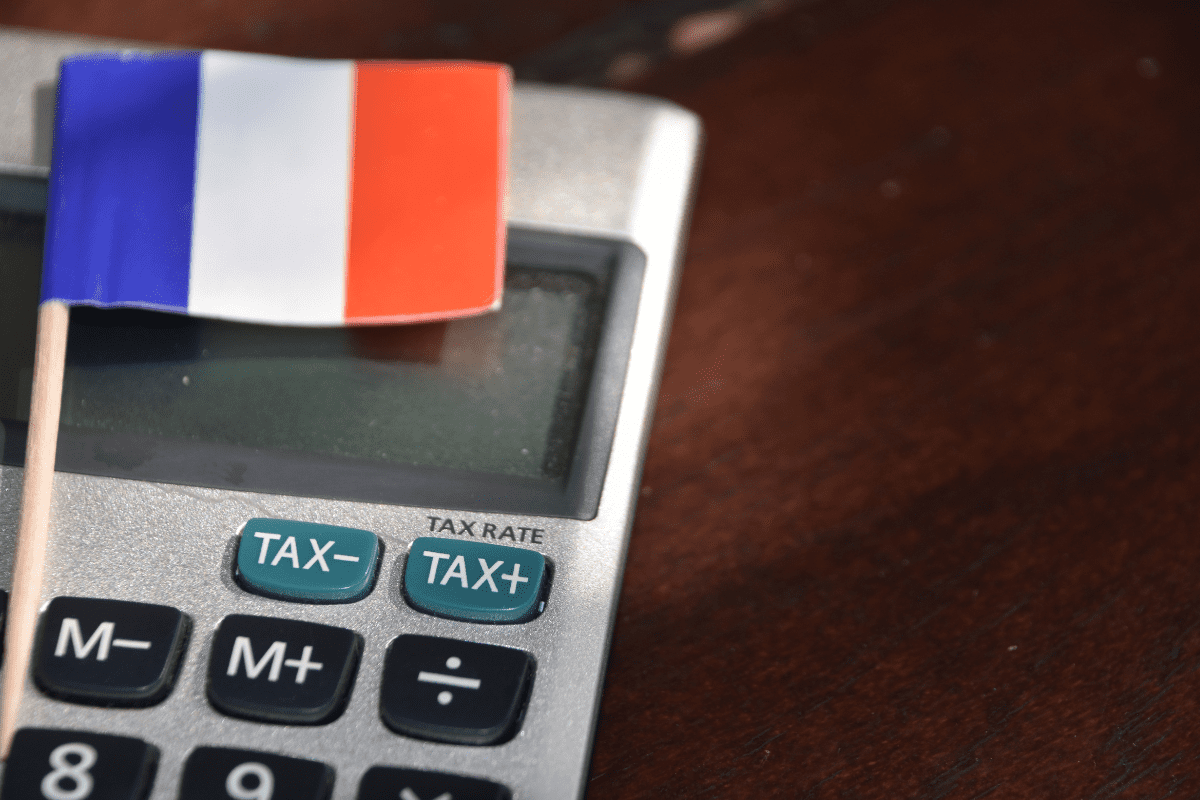
How is Assurance Vie taxed?
Only the gain element of any amount that you withdraw is liable to income tax and the rate of tax is determined by the date on which premiums are paid.
Premiums paid before 27th September 2017:
For premiums paid before 27th September 2017, the taxpayer has the option to be taxed at the progressive rates of the barème scale or the Prélèvement Forfaitaire Libératoire (PFL) rates, as follows:
- during the first 4 years at 35%
- between 4 years and 8 years at 15%
- post 8 years at 7.5%
- social charges at the rate of 17.2%* are payable in addition
Premiums paid from 27th September 2017:
The Prélèvement Forfaitaire Unique (PFU) – also known as the Flat Tax – was introduced in the Project de Loi de Finances 2018, published on 27th September 2017. From this date the PFU applies to the total amount of interest, dividends and capital gains on the sales of shares received by the taxpayer. It also applies to certain gains on withdrawals from assurance vie contracts.
The Flat Tax rate is 30%, made up as follows:
- a fixed rate of income tax of 12.8%; plus
- social charges at the rate of 17.2%*
For premiums to assurance vie contracts paid from 27th September 2017, the tax rate will vary according to the age of the contract, and for contracts older than eight years according to the ‘threshold’ amount of capital remaining in the contract as at 31st December of the year prior to the withdrawal being taken.
The threshold amount is €150,000 per individual person (across all assurance vie policies), which is determined by reference to the amount of the premiums invested, reduced by any capital already withdrawn, and not the value of the contract.
The threshold is not cumulative between persons and therefore couples who are taxed as a household cannot share in each other’s thresholds. Thus, one spouse may reach the threshold level whilst the other does not, for example where one has say €200,000 capital invested and the other only has €80,000 invested.
The PFU applies to assurance vie contracts of less than eight years regardless of the amount of the outstanding capital. Thus, the PFU rate of 30% replaces the pre-27th September 2017 rates detailed above.
Therefore, according to the age of the contract, the following tax rates apply:
- during the first eight years, the Flat Tax rate of 12.8%
- over eight years, 7.5% up to the threshold, plus 12.8% above the threshold
* A lower rate of social charges at 7.5% applies if you are resident in France and hold the EU S1 certificate, whereby you are covered by the health system of another EU or EEA country.
Insurers are obliged to deduct the tax of 12.8% or 7.5% (depending on the duration of the contract) plus the social charges. Subsequently, for contracts older than eight years where the taxpayer has exceeded the threshold, any additional tax due is charged through the taxpayer’s annual declaration.
Tax-free allowance on all policies after the eight year holding period:
In addition to this, and in all cases regardless of the ‘premium paid’ date, after holding a policy for eight years a single taxpayer receives an income tax allowance of €4,600 per annum against the gain element of any withdrawals during the tax year. For a couple who are subject to joint taxation, this is increased to €9,200. Hence, providing that the gain element of total withdrawals made during the year does not exceed the allowance, then there is no income tax to pay. This might not sound a lot, but it is a very useful allowance, as can be seen in the following simple example.
Peter and Pam have an AV policy, which they start in January 2018 with an investment of €100,000. They do not make any withdrawals on this investment for the next eight years, and it is then worth €160,000 (hypothetical). A new car is then needed, and they need some cash to help pay for it, so they withdraw €20,000 from their AV. In this case €60,000 of their AV worth €160,000 is profit, and that is 37.5% of the total, so it is logical that the gain element of their withdrawal is €7,500 and €12,500 is their original capital.
The insurance company (assurance vie provider) will deduct income tax and social charges on the gain element when they pay out the withdrawal. Since the policy is over eight years old however, and they are subject to joint taxation, Peter and Pam have a tax-free allowance of €9,200. The gain will then be declared on their next tax return and they will receive a rebate of the income tax charged.
Does an Assurance Vie have other advantages?
Without doubt, the AV is effective for inheritance planning. There are age restrictions, but via an AV policy you can leave up to €152,500 to any number of beneficiaries, each of whom will pay no succession tax. In addition, AV policies are exempt from the strict French succession rules. You can leave your money to whomever you wish. Should you wish to leave more than this amount to any one beneficiary, they will pay tax at a rate of 20% on the next €700,000, and then at 31.25% above that.
Is an Assurance Vie right for me?
An Assurance Vie is a valuable asset, helping you to shelter your capital and income from unnecessary taxation. It can provide protection for you during your lifetime and protection for your loved ones when you are gone. However, everyone’s circumstances are different and it is essential that you take professional financial advice before investing into this type of product.
Premium Bonds in France
By Andrea Glover
This article is published on: 13th May 2022

I meet many clients who are originally from the UK and hold Premium Bonds. In this article I want to talk through the tax and practical consequences of holding them as a French tax resident, as well as looking at a more suitable alternative.
Premium Bonds are a popular way to save money in the UK. Rather than offering a guaranteed interest rate, you could win tax free prizes between £25 and £1M every month. According to the NS&I website, there have been over 400 winners receiving the million-pound prize since 1994 and the average prize fund rate is 1% per annum. So, for the vast majority, the average prize rate is not keeping up with normal inflation rates.
Since BREXIT, it is important that NS&I customers living in the EU hold a UK bank account. Not having a UK bank account could invalidate the terms of your NS&I customer agreement and you may have no alternative but to close your account. Even if your terms are not invalidated, without a UK account NS&I would need to send you a warrant (like a cheque) which could be challenging to deposit into a non-UK account.
In France, Premium Bond winnings are not tax free – they have to be declared in your yearly tax return and are subject to tax in the same way as UK bank interest. On death, France will apply the relevant inheritance taxes to your worldwide estate, which would include Premium Bonds held in the UK. There is a double tax treaty between France and the UK for inheritance tax, which means that credit is given in France for any tax paid in the UK. So, you do not pay tax twice, but you do pay whichever is the higher amount.

Given the above, you may conclude that Premium Bonds are no longer an appropriate investment as a French tax resident. So, what are the alternatives?
In my experience, an Assurance Vie (AV) is one of the most suitable options to consider as a home for the cash in value of your Premium Bond savings. An AV is an insurance-based investment product and has the following advantages:
- The investments that you place within your AV are never touched by French income tax or capital gains tax whilst they stay inside the AV, unlike Premium Bond winnings
- If you keep the AV going for at least eight years, you then qualify for a special income tax-free band, on any withdrawals
- On death, you can leave each individual beneficiary up to €152,500 completely free of French inheritance tax, if you invest before the age of 70. This is of great advantage to blended families, as beneficiaries do not have to be directly related
- If you invest after the age of 70, you can leave a combined total of €30,500 inheritance tax free to all beneficiaries
- International AVs are available which allow you to invest in sterling. Therefore, your Premium Bond proceeds do not have to be exchanged into euros, unlike a French based AV
In conclusion, if you hold Premium Bonds, speak to a regulated Financial Adviser to seek advice as to whether they remain suitable for you as a French tax resident.
*First published in www.thelocalbuzzmag.com
RISK Can you avoid this in financial terms?
By Occitanie
This article is published on: 26th March 2021
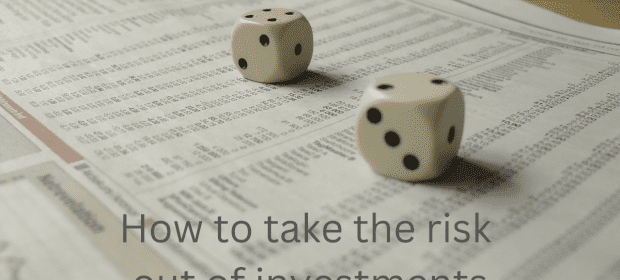
Welcome to edition number ten of our newsletter ‘Spectrum in Occitanie, Finance in Focus’, brought to you by your Occitanie team of advisers Derek Winsland, Philip Oxley and Sue Regan, with Rob Hesketh now consulting from the UK.
It seems remarkable, to me anyway, that we are already nearly a quarter of the way through the year. We still have the same problems to deal with, namely the fallout from Brexit and the continuing scourge of the Covid 19 virus, where the UK and France seem to be on diverging paths, both in terms of infections and vaccinations. With this in mind, we decided that it might be a good idea to talk today about risk, and how we might learn to live with it.
What is Risk?
Firstly, it is important to realise that risk is everywhere, and in various forms. In a sense it is like oxygen; without it, nothing happens. Sometimes you can see it, but most of the time you cannot. One thing that Covid 19 has taught us is that the very air that we breathe and the everyday items that we touch can kill us, and that is a sobering thought. The real definition of risk is the possibility that something bad might happen, either to you or because of something that you do; or even do not do. That is what makes risk exceedingly difficult to avoid. Often, we think of risk as taking a chance or a gamble, but sometimes a decision not to do something is just as risky.
Can I avoid Risk?
Yes, it is certainly possible to avoid some risks, but sometimes this has unintended consequences. If you do not eat, you cannot get food poisoning, but if you cut out that risk altogether, the end result is not positive. When it comes down to it, you have to accept risk. The real trick is calculating those risks and evaluating the likelihood of something bad happening. In investment terms, if you do not invest (and take some level of risk), you eventually run out of money. Unless of course you have a never ending and regular source of income – wouldn’t that be nice?
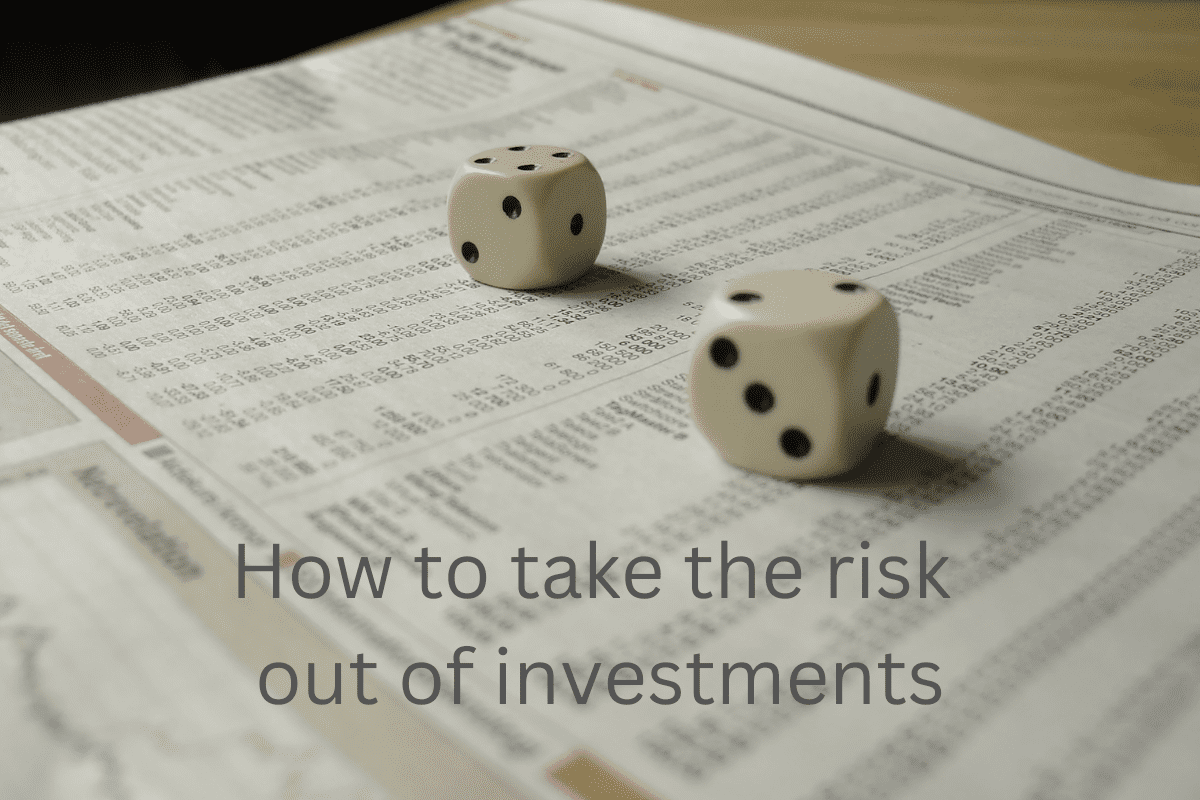
What is Financial Risk?
Basically, the danger of losing some or all of your money. And it comes in all shapes and sizes. There is a bewildering array of types of risk that analysts use to make them sound clever. There are however some really big ones that you need to look out for, and here are what I consider to be the most important. Have a think about how you would rate them in order of importance.
Specific and Market Risk
Here we have in fact two slightly different risks. Specific Risk is the danger of investing in one individual share, fund, or bond. If you limit yourself in this way, you put yourself at far greater risk of loss. All your eggs are in one basket. Market Risk is the danger of losing money even if you have spread out your investments more widely. Whole sectors can suddenly dip and turn against you.
Institutional Risk
You may have the best investment portfolio in the world, but what if your chosen investment company goes bust due to mismanagement, or maybe a rogue trader? Think Equitable Life, or Nick Leeson at Barings Bank.
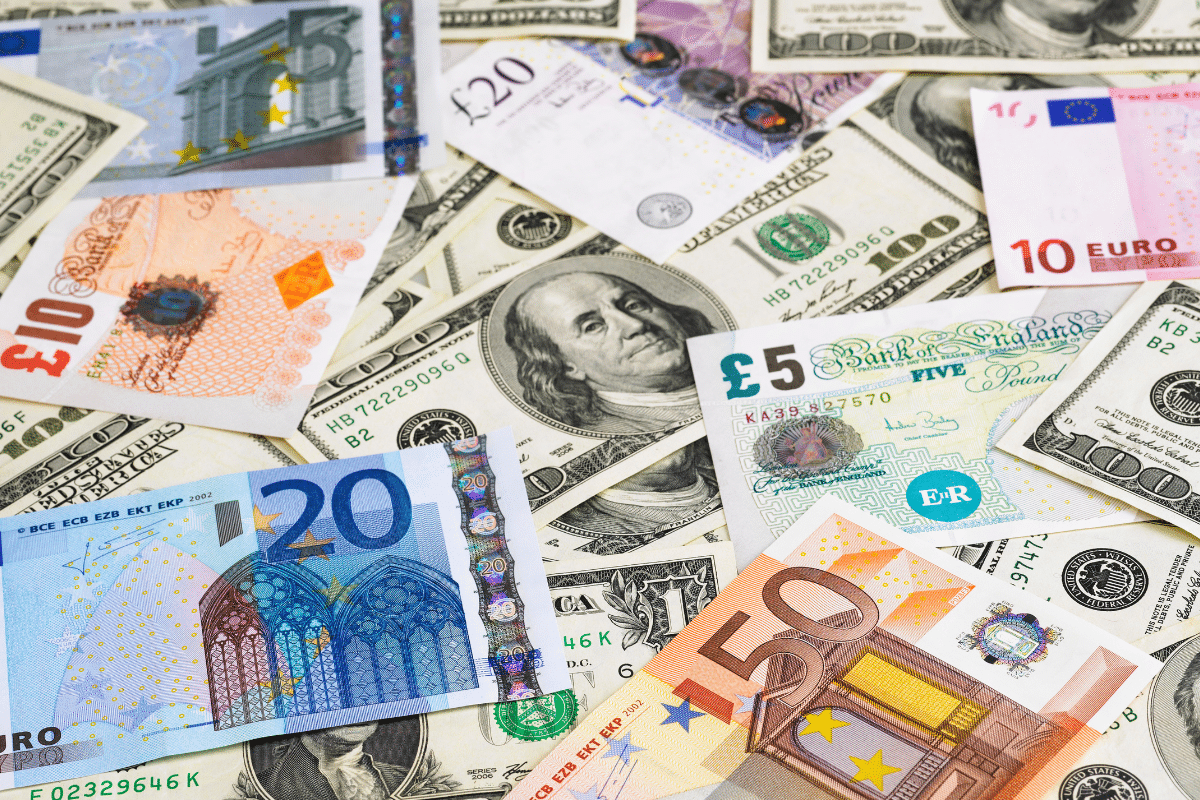
Foreign Exchange Risk
One day we may have just one global currency. Then we will be able to forget the pitfalls of F/X risk. Until then we need to be very wary, especially we UK expatriate residents in the eurozone. In just twenty-one years the exchange rate between the pound and the euro has fluctuated between 1.75 and 1.02. That is a massive trading range. Big enough to put a huge dent in even the best investment performance. Worse still, it was not a linear move. It keeps on going up and down.
Inflation Risk
Remember 23% inflation rates in 1975? I do. Great for reducing the value of debt very quickly, but equally adept at destroying the value of savings and investments.
With all these dangers lurking at every corner, you may well be considering the mattress as a suitable home for your money. Forget it. Inflation risk will kill you, even if your house doesn’t burn down, taking the mattress and your savings with it.
The plain fact is that we all need to accept some level of risk. There is a risk/reward ratio; there is no gain without some degree of risk. The more risk you take, the more chance you have of seeing exceptional returns, but there is also more chance bad things can happen to your investment. The trick is to evaluate your true appetite for risk, and that is not as easy as it sounds. Left to his or her own devices, a single investor will tend to overestimate an appetite for risk and end up with a more aggressive portfolio than he or she feels comfortable with when a market ‘realignment’, sometimes referred to as a crash, happens a few months or years later.
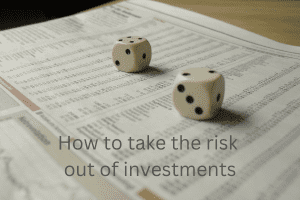
The truth is that we need someone to hold our hand and lead us through this risk minefield. If we try to navigate the minefield ourselves, we are likely to lose a financial limb or two, or even worse. There are various levels of help available to us
The most effective, in theory anyway, is the DFM, the Discretionary Fund Manager. He (or she) will sit down with you at the outset and ask you lots of clever questions which are designed to reveal your real appetite for risk (not just what you thought it was). You then pay a fee of around 1% of your portfolio each year for the DFM to invest your money for you and produce as good a return as possible without exceeding your risk pain threshold.
If you decide that you cannot afford a DFM, or maybe you have not got quite enough money for a DFM to offer his services to you, the next best thing is MAP, which stands for Multi-Asset Portfolios. They are offered by insurance companies or investment services providers. These funds are specifically designed to offer you investments that are graded for risk and ensure that your investments are spread out over many markets and sectors, thereby reducing your ‘specific’ risk. Both DFM and MAP investments can be held in what are known as ‘open architecture’ bonds within assurance vie policies in France.
Many of you will also be acquainted with the ‘closed architecture’ assurance vie offered by Prudential International. This assurance vie effectively combines the dual role of the DFM and MAP. Their PruFund range of funds is administered by Pru’s own in-house team of fund managers, and each fund is invested in a wide range of markets and sectors.
In essence then, my message is this; do not take on risk without knowing exactly what you are doing, but do not avoid investments. If you do not know exactly what you are doing, get a professional to do it for you. They are acutely aware of all kinds of risk, and how to use it proportionately. Your friendly local International Financial Adviser (that’s us by the way) is there to act as a conduit to guide you into safer investment waters.
Do not be afraid to ask for advice. It also happens to be free.
Please do not forget that, although we may be restricted on where we can travel at present, we are here and have the technology to undertake your regular reviews and financial health checks remotely. If you would like a review of your situation, please do not hesitate to get in touch with your Spectrum adviser or via the contact link below.
Should I leave money in the bank?
By Michael Doyle
This article is published on: 22nd March 2021
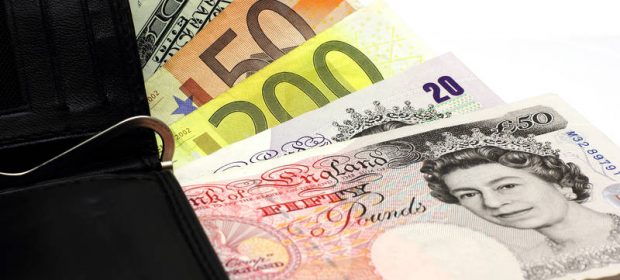
For citizens living in France, assurance vie is known to be one of the safest ways to invest money and organise your inheritance. It is an insurance instrument that serves as a tax-efficient investment vehicle containing one or more underlying investments.
Why It’s Considered Better Than the Bank?
In November 2020, the Banque de France told us that the average interest rate on bank deposits is 0.46%, unchanged since August 2020.
Any gain on your deposit would be subject (in general) to a 30% charge between tax and social charges, leaving a return on investment of just 0.32%.
Couple that with the fact that inflation in France in 2020 was 0.46% (www.statista.com) and you are effectively losing money by leaving it in your bank account.
A well-managed cautious portfolio held within an assurance vie returned about 4% in 2020.
Benefits of Inheritance
When you set up this form of investment before you turn 70, each beneficiary is entitled to a tax-free deduction of €152,500 for money invested before you turn 70, with taxes limited to 20% for everything beyond that (although sums exceeding €700,000 per beneficiary are subject to a higher tax rate of 31.25%).
Why Should You Invest in Assurance Vie?
Investments held within an assurance vie grow income tax and capital gains tax free, so you have a gross roll up of any gains within the investment.
Tax and social charges are paid only on withdrawal, however as part of the return is capital much of these gains are offset.
Advantages for Foreigners
If you are a foreign national living in France, assurance vie should be a key investment, particularly if you expect to live there for the long term. As a British expatriate living in France, you have a host of international assurance vie policies at your disposal, most of which are Brexit-proof. Not only are these policies consistent with the European Union rules, but they also operate across borders in the United Kingdom, meaning you can take them with you if you change your home again or go back to the UK.
Assurance Vie, an Alternative Way to Save For Your Retirement
By Michael Doyle
This article is published on: 15th March 2021
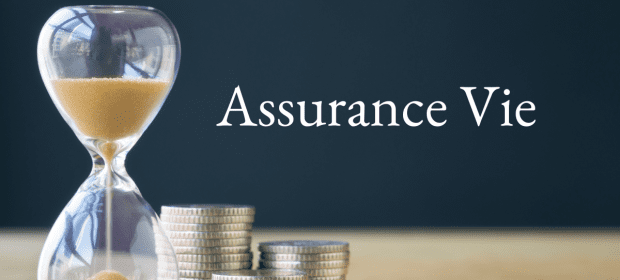
Many people are looking for an alternative to setting up a regulated pension for their retirement savings. Whilst there is tax relief on pension contributions in the savings phase, they are happy to give this up for more flexible and tax-effective income during retirement. In France, the most popular vehicle used for long-term savings is a contrat d’assurance vie, in which investors have the opportunity to invest regular premium savings or a temporary amount.
What Is an Assurance Vie?
An assurance vie is an insurance-based investment that can be as straightforward or as nuanced as you like. The following are the benefits of assurance vie for French residents:
- While the funds remain within the assurance vie, there is usually no tax on any income or gains (i.e., the tax is deferred). However, social contributions are now withheld on an annual basis (rather than when the funds are withdrawn) for sums invested in a fonds en euros portfolio, just as they are for French bank deposits
- A portion of any withdrawal is regarded as a capital withdrawal and is tax-free
- An assurance vie becomes more tax-effective over time, and after eight years, the income can be offset against a tax-free allowance of (currently) € 9,200 per year for a couple submitting a joint tax return or €4,600 for an individual
- You have total control of your money and may obtain monthly income payments from the insurance provider. However, withdrawals in the policy’s early years you can incur penalties, depending on the contract you select
- If your circumstances or attitude toward investment risk changes, you might be able to change the funds in which you invest
- For inheritance purposes, assurance vie is extremely tax-efficient
Assurance vie is the traditional form of saving for millions of French citizens. Several billions of euros are invested by French banks and insurance firms that sell their own branded products.
Additionally, a much smaller group of non-French companies have designed French-compliant policies for the expatriate market in France. These businesses are generally located in heavily regulated financial hubs like Dublin and Luxembourg.
However, before selecting such a firm, make sure that it is a product completely compatible with French law to get the same tax and inheritance benefits as the French equivalent product.
Below are some of the benefits of a foreign assurance vie policy over a French assurance vie policy:
- Other currencies, such as sterling, US dollars, and Swiss Francs, may be used to save
- There is a wider variety of investment options available, including access to top investment management firms and capital-guaranteed products and funds
- The report is written in English, making it easier for you to comprehend the terms and conditions of the assurance vie program
- The assurance vie policy is generally portable, which is beneficial when travelling within the EU (or many other countries in the world)
When it comes to EU countries, the taxes can be confusing. In these jurisdictions, the plan is often accepted for its beneficial tax performance.
How Does Assurance Vie Work?
Your one-time or regular investment or premiums are paid to an insurance firm, which then invests the funds with the investment managers of your choosing. These are typically unit-linked investments, such as equity or bond funds, but they may also be deposits or unique products sold by different financial institutions.
You may invest in a range of funds which the insurance provider can pool together to create a mutual bond, which is your assurance vie policy. The value of the units you keep in managed funds is likely to increase over time if you have selected your investment wisely.
As a consequence, the value of your assurance vie policy will grow accordingly. You must, however, be fully conscious of and comfortable with the level of risk you are taking. As with any unit-linked investment, your fund’s value will go up or down depending on what is happening in the investment markets. Short-term market instability, on the other hand, typically has a lower impact over time
How Do I Choose What to Invest Inside My Assurance Vie?
You may hold strong opinions on the subject or have no opinions at all. In any case, having an excellent financial planner on hand is helpful. His or her job is to help you comprehend the full definition of investment and decide your attitude toward investment risk.
Without acknowledging any risk, there is little reasonable chance of making a significant return on your savings. Even leaving your savings in a bank these days carries the risk of not receiving a ‘real’ rate of return, i.e., one that keeps up with inflation.
An adviser can show you various types of investment options, clarify how they operate, their track record, and the nature and level of risk that the investment entails. Although you make the ultimate decision, his or her support may be helpful.
Following the initial investment, there should be regular follow-up meetings to assess your investment’s success and make any appropriate adjustments. This may be because your circumstances have changed or because certain funds aren’t performing as well as anticipated, and you’d like to replace them with funds that are.
Can Capital Be Guaranteed Via a French Assurance Vie?
The willingness to invest in a fonds en euros is a common feature of the French assurance vie (though this is also available, in limited circumstances, from insurance companies outside France).
Since your money, as well as any interest and year-end bonus applied to it, is guaranteed, this unique type of fund is structured to shape a very conservative base for your overall investment.
The majority of foreign companies that supply these forms of funds also provide sterling and US dollar equivalents. Intending to increase returns, the funds invest mainly in government and corporate bonds, with some exposure to equities and assets (real estate). Your money will earn interest over the year.
The insurance firm is allowed by statute to refund the bulk of the funds to your account in the form of a year-end bonus. The remaining portion of the fund’s return is kept in the insurance company’s reserves to smooth out potential investment gains, such as in periods of weak market results. However, the rate of return on the fonds en euros is ordinarily low due to the quality of the guarantees. Still, it is generally better than the interest received on a bank deposit account with immediate access.
However, the French tax authorities consider this form of a fund to be so without risk that annual social charges are imposed on the gain, potentially lowering the return rate over time.
It is also possible to invest in structured bank deposit offerings through some foreign assurance vie policies. The investment return is related to the stock market, but the capital invested is guaranteed.
How Is an Assurance Vie Taxed?
Only the benefits portion of every amount you withdraw is taxable, and after January 1, 2018, the tax treatment differs depending on whether premiums were charged before September 27, 2017, or after that date.
Premiums paid before September 27, 2017
You may either be taxed at the set prelevement rate or file an annual income tax return, depending on your tax situation. The following is how the prelevement scale works:
- Withdrawals made within the first four years are taxed at a rate of 35 percent
- Withdrawals made between years four and eight are taxed at a rate of 15 percent
- After eight years, withdrawals are taxed at a rate of 7.5 percent
Furthermore, social charges are imposed on the benefits portion of the amount withdrawn, at a rate of 17.2 percent. People prefer the progressive rate tax if it is lower than their marginal rate of income tax.
In France, the highest income tax rate is officially 45 percent. As a result, even though 35 percent appears to be a high rate, it is still the best choice for higher-rate taxpayers. After four years, you’ll have to reconsider which form to use. If your marginal tax rate is at least 30 percent, a prevelement rate of 15 percent is a better choice.
If you are a non-taxpayer (as more people are now since the 5.5 percent tax bracket was eliminated), you can opt to report the withdrawal on your annual income tax return.
After eight years, there is an extra income tax incentive to encourage people to save more for the long term. A single taxpayer is entitled to a €4,600 income tax credit against the benefits portion of any withdrawals made during the tax year. This is raised to €9,200 for married couples who are subject to joint taxation. There will be no income tax to pay if the benefits portion of total withdrawals made during the year does not surpass the allowances.
This might not seem like much, but it’s a valuable allowance, as shown by this example of Peter and Pam’s assurance vie policy, which they began nine years ago with a €100,000 investment. They have not taken any withdrawals, and the account is now worth €160,000. They want to buy a new car and need €15,000 to help pay for it, so they withdraw this amount. They receive a tax certification from the insurance firm when they make this withdrawal, showing how much gain is included in the amount withdrawn. The guaranteed value has risen by 60%, but the taxable benefit factor is only 37.5 percent (or €5,625) in this case. Since they have a tax-free allowance of €9,200 and they are subject to joint taxes, there is no income tax to pay.
Premiums paid from September 27, 2017
The tax rate varies based on the contract’s duration, plus whether capital remaining in the contract as of December 31 of the year before the withdrawal was above a threshold sum for contracts longer than eight years. The threshold amount is €150,000 per person (across all assurance vie policies), measured by the amount of premiums invested minus any money already withdrawn, rather than the contract’s value. Couples taxed as a household cannot share each other’s threshold because the threshold is not cumulative between individuals. As a consequence, one spouse can meet the threshold while the other does not.
On January 1, 2018, France adopted a 30 percent flat tax,’ consisting of 12.8 percent income tax and 17.2 percent social charges. As a result, for contracts that are less than eight years old, a flat tax is levied on gains in withdrawals which are deducted automatically by the insurance provider. The flat tax replaces the pre-September 27, 2017 rate of 52.2 percent (35 percent tax plus 17.2 percent social charges) for contracts of up to four years and 32.2 percent (15 percent tax plus 17.2 percent social charges) for contracts of four to eight years.
After eight years, the tax rate is 7.5 percent. In addition, there is 17.2 percent social charges to pay. The tax free allowance of €4,600 for a single taxpayer or €9,200 for a couple is still in place after eight years. When filing their French tax return, taxpayers can also choose to pay tax at their marginal rate in the ordinary income tax brackets (rates varying from 0-45%) plus social charges. Any excess tax already charged would be refunded after processing the tax declaration made in the year after payment of the withdrawal since the insurance provider will have already deducted 12.8 percent or 7.5 percent.
However, taxpayers should be mindful that if ordinary band taxation is selected for assurance vie dividends, this will extend to all other sources of investment profits, such as interest and persons, as well as capital gains from the selling of shares.
Does Assurance Vie Have Other Advantages?
Without question, assurance vie is also a powerful tool for estate planning, both in reducing French inheritance taxes and giving you leverage over who inherits your properties after you die. This form of investment is considered outside of your estate for
When you set up this form of investment before you turn 70, each beneficiary is entitled to a tax-free deduction of €152,500 for money invested before you turn 70, with taxes limited to 20% for everything beyond that (although sums exceeding €700,000 per beneficiary are subject to a higher tax rate of 31.25 percent).
The inheritance benefits are limited for sums invested after the age of 70. There is a €30,500 tax-free exemption in this situation (plus the investment return on the total invested) for all of the people who profit from it. Any portion of the premium that reaches €30,500 is subject to regular French inheritance allowances, which differ based on the beneficiaries’ connections to the policyholder. Any gain in the scheme paid out as a death benefit is also subject to social taxes at the current rate of 17.2 percent.
Assurance vie can be a valuable tool for estate planning and providing a tax-efficient source of income for the policyholder over his or her lifetime.
Is your money safe under the mattress?
By Katriona Murray-Platon
This article is published on: 5th March 2021

March is my favourite month of the year, not least because I celebrate my birthday during this month and this year will be the end of my 4th decade. Traditionally it has always been a busy month because it is a great time for events and starting new projects. This month my colleagues and I will be attending another virtual property fair hosted by Your Overseas Home. The event we did last year was very good and lots of people were able to see our presentations and then chat to our advisers from the comfort and safety of their own homes.
By October 2021 I will have lived in France for 18 years continuously, but I first arrived for my Erasmus year in September 2001 making it 20 years since I started living in France. As you may know I am married to a Frenchman and I have adopted much of the French culture and way of life. But my husband and I have very different views in our attitude to risk and finances. My husband came from a farming background where money was hidden under the mattress, you only bought when you had the money and you insured everything that could be insured. My husband will take a 10 year extended guarantee on a toaster! I came from a background where it was common to use credit cards to fund Christmas and holidays and I went to university with a student loan.

The idea that money is safe under the mattress or in the bank is no longer true. In France the traditional popular savings accounts such as the Livret A and LDD now only have an interest rate of 0.5%. The other misled belief that French assurance vie policy holders have is that Euro Funds are a good investment and a safe investment. Whilst it is true that Euro Funds are still one of the least risky investments after the traditional bank savings accounts, their performance continues to drop year after year. The average growth rate of the Euro Funds in 2020 is 1.2% which, once you deduct social charges (17.2%) and take into consideration inflation (0.5%), the net gain is only 0.5%. One of my own French assurance vie policies, which is 69% Euro Funds, has made an average of 1.6% over the seven years since it was created. The problem with French assurance vies is that they are not bespoke; they come with certain formulas, some that you can contribute to monthly, some that you cannot, and depending on your choice you cannot go lower than the prescribed amount in Euro Funds, no matter what your risk profile.
When I compare this with the range of product providers we can offer our clients and the choice of funds, the difference is astounding. Thank goodness that as English speakers we have access to better investment possibilities from as little as £20,000/€25,000. The average performance of my clients’ portfolios is around 3% after charges, with no social charges taken at source, and they have a lot of choice and flexibility regarding which funds they want and how much of that fund they want their investment to be in. They also have access to English speaking product providers, English speaking fund managers and their own English speaking financial adviser who is supported by the knowledge and experience of all of the Spectrum advisers.
I am fully integrated into French society and believe in adhering to many things about French society, but when it comes to finances there are differences between us that we cannot ignore so it is not in our best interest to invest in French financial products.

The outlook this March is thankfully much better than last March. There is more good news for Prudential policy holders. At the end of February Prudential announced no changes to the Expected Growth Rate and upward Unit Price Adjustments in the PruFund Growth Sterling, PruFund Growth Euro and PruFund Cautious Euro funds.
For other funds and the markets in general the outlook is equally positive. “The combination of vaccine roll-out, substantial fiscal stimulus, and elevated consumer savings should drive a sharp recovery in economic and earnings growth,” said Ryan Hammond, a Goldman Sachs strategist, in a report this week.
Whilst mask-wearing and social distancing will still be necessary for some time to come, a lot of our friends and family members have been vaccinated, therefore reducing the risk to the most vulnerable. With the coming good weather, meetings and get togethers will be able to take place out of doors. As always, if clients are happy to arrange a face to face meeting, I look forward to seeing them for outside meetings in their lovely gardens. If however you prefer video meetings or phone calls that is also possible.
Wishing you all a bright, sunny and floral month of March!
Top 3 Financial questions after BREXIT
By Andrea Glover
This article is published on: 1st February 2021
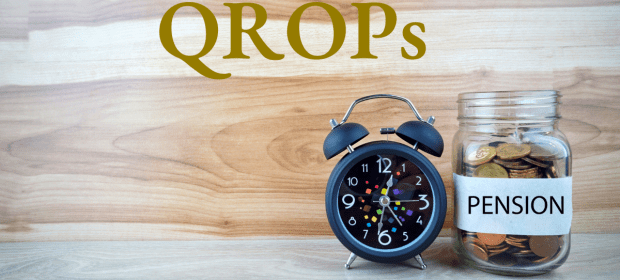
We asked Andrea Glover & Tony Delvalle – What are the current top three ‘hot topics’ with clients, particularly affecting retirees?
UK State Pensions
Andrea commented, “The withdrawal of the UK from the EU has obviously been an area of concern regarding UK State pensions. Now the Withdrawal Agreement has come into force, it is reassuring that those covered by the agreement will continue to benefit from aggregation of periods worked in the UK and EU, and those not yet retired will have the same benefits as current claimants.”
Tony went on to say, “UK State Pensions will be uprated every year whilst residing in France. This will happen even if you start claiming your pension after 1 January 2021, as long as you meet qualifying conditions.”
UK Properties
Many people coming to live in France often decide not to sell their UK home, instead renting the property out to supplement their pension income. Tony explained, “We are frequently asked if this is sensible as a form of investment. Whilst there is often an emotional tie to a former home, or perhaps a client wants to keep the option of returning to their UK home, there can be punitive tax consequences to such a decision, should they then decide to sell the property as a French tax resident.”
Tony continued, “The sale of a UK property has to be declared in both the UK and France. Although under the UK/France double tax treaty you receive a credit in France for any UK tax paid, French residents can also pay social charges on gains arising on the disposal of a UK property. There are also new rules effective from April 2020 in the UK, making such a decision even less attractive.”
Andrea summarised by saying “It really is important to speak to a Financial Adviser, particularly if you haven’t yet made the final move to France. Dependent on personal circumstances, it may be more beneficial to sell their property and invest in a more tax efficient investment vehicle such as an Assurance Vie.”
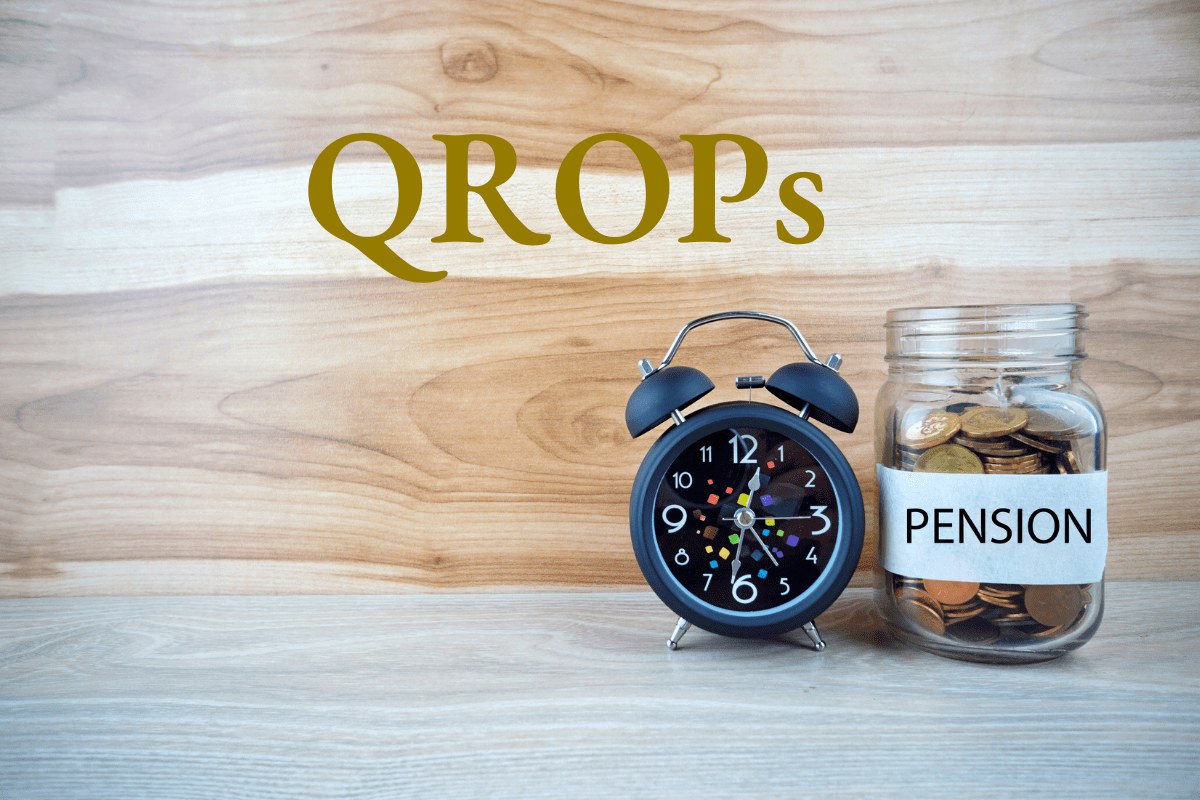
Qualifying Recognised Overseas Pension Schemes (QROPS)
Tony told us that many of their clients have taken advantage of a
QROPS, which enables consolidation of UK pension policies and which has attractive tax and inheritance tax advantages for French tax residents. QROPS can also offer multi-currency flexibility.
Andrea commented, “Many clients currently considering moving their pensions are querying if there are to be any changes in QROPS legislation, in view of Brexit. Our stance on this is that we believe it is highly likely that the UK Government will, after the transition period, impose a 25% tax charge on future transfers to a QROPS, making them less desirable. So, although they may not be suitable for everyone, don’t risk leaving it too late or you may face the 25% charge.”
Which Assurance Vie is best?
By Katriona Murray-Platon
This article is published on: 7th September 2020
In answer to the question of where do you put your money for maximum tax efficiency, an assurance vie is certainly the best place to put it. The French have continued to favour this investment over the years. According to the French Insurance Federation (FFA), in 2019 the premiums paid into assurance vies increased by 3.5% in 2018, to a total of €144.6 billion. I subscribe to a French financial magazine and every year they do an article on the best assurance vies in the market. This gives me an interesting insight into which products are recommended for the typical French investor.
What is interesting to note is that it is very rare for bank assurance vies to appear in this list. Banks have several assurance vie products under different names with different offers and it can be hard for the consumer to understand and compare performance and costs. Every member of my household, including my children, has an assurance vie, because even after social charges on the part in Euro funds, they are more likely to outperform any cash savings accounts. For example, the Livret A (the preferred savings account of the French) and the LDDS now only pay 0.5% interest per year and any other savings account offered by banks only generally offer between 0.2-0.3% interest which is not exempt from tax and social charges.
The French tend to favour investments in Eurofunds, believing them to be a safe option. Whilst this may be true if the investment horizon is less than three years, in the longer term inflation has a negative effect. The days of glory of the Eurofunds was around 2013-2014 when rates reached 2.5%. In 2019 the average rate on Eurofunds was 1.5% compared with 1.8% (net of fees) in 2018. However when compared with inflation, which was 1.8% in 2018 and 1.1% in 2019, there wasn’t much ‘real’ growth. Social charges are taken at source on such investments which further impacts performance. If your investment horizon is over three years and closer to between five and eight years then you should be investing at least partly in equities to produce a positive return above inflation. If it’s security you are looking for, the more diversified your assets, both in terms of asset classes and geographical location, the better your portfolio will be to weather market fluctuations.
The advantage with bank assurance vies is that you can start with smaller amounts to invest and build up with regular monthly amounts. However as a financial adviser with a high level of French, even I find it difficult to understand what exactly is in these assurance vies and where the underlying investments are held. Usually you are given the option of eurofunds and euro equities. It is rarely possible to hold assets in a different currency. We work with assurance vie providers who can allow you to hold assets in sterling and dollars as well as euros, which would allow you to leave this money to beneficiaries living in the UK or the US and avoid transferring the money into euros at today’s exchange rate. If you wanted to invest in euros but are holding sterling, over time it can be switched into euro funds at the appropriate time and with advice from your financial adviser.
It is not easy to change assurance vies. The French government changed the rules at the beginning of last year allowing people to change contracts but only with the same insurer. However this depends on whether the insurer will allow you to change contracts and whether they have anything better to offer.
If you are in your 40s, 50s or 60s and your investment horizon is longer than eight years, and if you find that your assurance vie is not performing as it should, or you no longer get the proper advice/service from your financial adviser/assurance vie provider, you could consider encashing the policy and finding a better investment. Professional guidance from an authorised financial adviser is essential to determine whether this this option is appropriate for your circumstances.
If however you are over 70 and set up the assurance vie before 70, or you set up the assurance vie over eight years ago and are benefitting from the income tax abatements of €4600 per person (€9200) per couple, it may not be in your interest to change assurance vie providers. There are still many benefits of setting up a small assurance vie after 70 to benefit from other abatements, but that will depend on your situation and you should discuss options with your financial adviser.
I would always advise speaking to a financial adviser before going into any investment whether French or foreign. You need to be aware of the past performance of the investment (although this is no promise of future returns), the reputation of the investment company and the costs and how this may affect investment performance. For more information about assurance vies in general please see our guide but if you are considering this type of investment please do contact your local financial adviser.
“Brexit proof” your investments using a top UK financial institution
By Spectrum IFA
This article is published on: 27th May 2019
If you are living in France, did you know that a certain large, household name
UK financial institution offers a product locally from Dublin based sister organisations? This product is both EU regulated and tax efficient in France, an Assurance Vie and it is in English.
As a result, should the UK leave the EU, you can still invest with a company whose name you know and trust in a tax efficient manner, in the country you now call home.
So what is Assurance Vie (AV)?
For Brits, an Assurance Vie could be viewed as a sort of ‘big ISA’. It is the tax wrapper ‘par excellence’ for French residents and for the French themselves. Most French families have them, even members of the current government, and at the end of February 2019 total holdings in AV stood at a whopping 1,798 billion EUR! So for the foreseeable future, AV is here to stay.
As a British expatriate resident in France you have a number of international AV policies available to you, all of which are Brexit-proof. Not only are such policies compliant in the European Union, but they work cross border in the UK, so you can take them with you if you change home again or return to Blighty. And while you continue to live in France you have the reassurance that your policy benefits from the advantages of French AV, but not subject to the potentially punitive Sapin II Law which could be used to block French AV policies.
What are the main advantages of international Assurance Vie?
1/ AV has liquidity advantages for better cash flow planning
• Regular withdrawals can be made, making it an ideal vehicle to provide income to compliment your pension and rental income.
• Unlike an investment in rental property, the capital from an AV policy can be obtained relatively simply, quickly – and also partially.
• Wealth Tax (IFI) applies to real estate assets but not financial assets held within an AV policy.
2/ AV takes the hassle and cost out of tax reporting and legal paperwork
• If your investment portfolio is unwrapped (i.e. held directly and outside of an AV tax wrapper), then all transactions must be reported when completing your French tax return. The French tax authorities require all calculations to be reported in Euros, regardless of the currency of the underlying investment, and may also request the translation of various documents. The option of paying an accountant or tax adviser may save time and simplify matters for you, but will increase expense.
• In contrast, if the investments are held within an AV policy, all transactions are grouped for the purposes of administrative and tax returns, regardless of how many purchases and sales of investments occur over the year.
• Also should your priorities change over the years, it is a simple procedure to alter your choice of who will benefit from the money when you pass on. Changing the beneficiary clause within an AV is a simple procedure, and certainly a lot easier and less costly than altering your will with a lawyer.
• Moreover, when the time comes, your beneficiaries need simply apply directly to the insurance company itself. There is no need to pass via a notary to access the funds, the release of which can otherwise be subject to delays especially in the case of complex successions or legal challenges.
3/ AV reduces capital gains tax and investment costs
• When a portfolio is ‘unwrapped’, the sale of any investment triggers tax at the full prevailing tax rate on the resultant gain realised. So, if a portfolio consists of 15-20 lines which are being regularly bought and sold, this can become a reporting nightmare.
• Worse still, it also means that amounts can be taxed, then taxed again, and this perhaps several times over the lifetime of the portfolio. The tax consequences that typically apply to directly held portfolios can become an important consideration for your investment manager, reducing the scope of investments they are likely to consider, therefore potentially hampering performance.
• In contrast, within an AV policy, income tax and capital gains tax are not applied as long as a withdrawal does not occur. Thus, investment funds growing within the tax wrapper accumulate gross and benefit from a ‘compounding effect’ over time.
• And when a withdrawal does occur, only the gain or growth element is subject to income tax, not the capital. The actual liability is determined by how long the policy has been in existence, with the rate payable reducing on a sliding scale which is progressively lower depending on the duration of the policy. After 8 years any withdrawal benefits from an annual tax free allowance of €4,600 of the gain for a single person (€9,200 for a married couple).
• Moreover, a discretionary managed investment portfolio held within a Dublin domiciled AV is not subject to VAT, representing substantial saving on investment management fees.
4/ AV has significant inheritance planning advantages
• Planning who benefits from your estate is complicated in France by the restrictions imposed by the Napoleonic Code. Leaving sums to an unrelated third party such as a friend or unadopted foster child can attract tax of up to a massive 60%, so taking advice is essential.
• In contrast, AV avoids French inheritance law, so any funds held within a contract are effectively taken out of the French succession process.
• Within an AV policy, any number of beneficiaries (related or not) can be appointed and a tax free allowance of €152,500 per beneficiary applies. Above that threshold, a rate of 20% is payable up to €700,000 after which a rate of 31.25% applies. These rates compare very favourably with those that apply outside the wrapper.
5/ AV is more secure than your bank account
• The least customers should be able to expect from their banks is that they are solid and secure, but all is still not well in the banking sector. Since the height of the financial crisis, which began in 2007-08, banks have come under pressure to put their houses in order. In spite of this, a number of big banks have weak balance sheets, and remain technically insolvent. This is not the case of the bigger insurance companies in reputable jurisdictions like Dublin and Luxemburg which are required to maintain minimum capital levels and liquidity ratios.
• There is also a potential risk of levy on client deposits. Customer savings are held on the bank balance sheets as liabilities, not ring-fenced and protected as they are with insurance companies in certain jurisdictions. Therefore, in the event of a bank failure or forced restructuring, customers’ deposits could be at risk, at least partially. Indeed, in the EU there exists a precedent when so-called ‘haircuts’ were taken from personal savings deposits during the Cyprus banking crisis of 2012-13.
• There is now an EU ‘bail-in’ law. On 1 January 2016 the Bank Recovery and Resolution Directive (BRRD) came into force across the EU confirming new bail-in regulations. In the event of a future banking crisis depositors could face having to foot at least part of the bill – in contrast to the government bank bail outs of 2007-2009, when taxpayers’ money was used.
In July 2017, the Financial Times reported that ‘Those who receive financial advice are on average £40,000 better off than those who don’t’. And significant savings can indeed be made on condition you have proper financial advice, solid investments and the right tax wrapper. So do not let Brexit hold you back. The time to make money and save costs is now. Get the right advice, and maybe you too could save £40,000!
French Tax Changes 2019
By Sue Regan
This article is published on: 31st January 2019

2019 has brought a number of changes to the French tax system. Below is a summary of the principal changes affecting personal taxation.
INCOME TAX (Impôt sur le Revenu)
There has been no change to the rates of income tax of the barème scale, but the tax bands have been increased as follows:
| Income | Tax Rate |
| Up to €9,964 | 0% |
| €9,965 to €27,519 | 14% |
| €27,520 to €73,779 | 30% |
| €73,780 to €156,244 | 41% |
| €156,245 and over | 45% |
PAYE (Prélèvement à la Source)
PAYE has been introduced in France with effect from 1st January 2019.
The types of income subject to PAYE include:
- Income from employment
- Retirement income, including UK private and State pensions, but excluding certain pensions where tax is already deducted at source, such as UK Civil Service pensions
- Rental income, including that from French properties owned by people who are not resident in France.
For French source income, the employer or pension provider will deduct the tax at source.
Clearly, where income is generated from outside of France there can be no deduction at source by the French authorities. This means that many expatriates living in France will be subject to a monthly withholding tax on their income. Therefore, starting in January 2019, the tax authorities will collect a sum equal to 1/12th of the tax paid in 2018 (based on income declared for 2017).
Excluded from PAYE is investment income, such as bank interest, dividends, capital gains and gains from life assurance policies.
New residents of France who have not yet submitted a French tax return, will have the option of paying a sum ‘on account’, or be taxed in May 2020, following submission of their first tax return.
Everyone will still be required to submit a French tax return in the May of the following year. Thereafter, the final assessment of tax liability will be carried out, and you will either receive a tax refund or be required to pay any additional tax due, over a four-month period.
If you do not currently pay any income tax, you will not be required to pay provisional monthly payments. Similarly, if you anticipate a significant change to your income during the course of the year you can request that the tax authority alter your tax code. However, if you do so, and your income is 10% greater than advised, you could face a tax penalty of at least 10%.
REFORM OF SOCIAL CHARGES (Prélèvements Sociaux)
Some changes have been introduced to certain social charges, which is good news for some taxpayers.
The main rates for social charges remain the same as for 2018, i.e.:
| Source of income | Rate |
| Pension | 9.1% |
| Investment and property rental | 17.2% |
| Employment | 9.7% |
Social Charges on Pension Income
The exemption from social charges on pension income still applies if you hold the EU S1 Certificate or if France is not responsible for the cost of your healthcare.
However, those pensioners who do not satisfy the exemption conditions above, but whose pension income is less than €2,000 per month (or €3,000 for a couple), will now pay a lower rate of 7.4% on pension income.
Social Charges on Investment Income and Capital Gains
From 1st January 2019, individuals covered under the health care system of another EU or EEA country are no longer subject to the existing rate of 17.2% on investment income or capital gains. Instead they will now pay a new flat rate of 7.5%. This new flat rate is known as the ‘Prélèvement de Solidarité’ and represents a saving of 9.7%. It applies to investment income, such as property rentals, bank interest, dividends and withdrawals from ‘assurance vie’ policies, and capital gains realised by both residents and non-residents of France.
In summary, taxpayers can benefit from the new 7.5% rate on investment income if:
- They hold the EU S1 Certificate
- They are a non-resident of France earning French source income (i.e. rental income, capital gains on the sale of a French property, etc) and are covered by the health system of another EU or EEA country
ASSURANCE VIE
There are no changes to ‘assurance vie’ apart from the social charges reform detailed above which will benefit some policyholders.
For policies held for more than eight years, the annual allowance remains at €4,600 for individuals and €9,200 for married/PACS couples.
This outline is provided for information purposes only based on our understanding of current French tax law. It does not constitute advice or a recommendation from The Spectrum IFA Group to take any particular action to mitigate the effects of any potential changes in French tax legislation.
If you would like to discuss how these changes may affect you, please do not hesitate to contact your local Spectrum IFA Group adviser.

